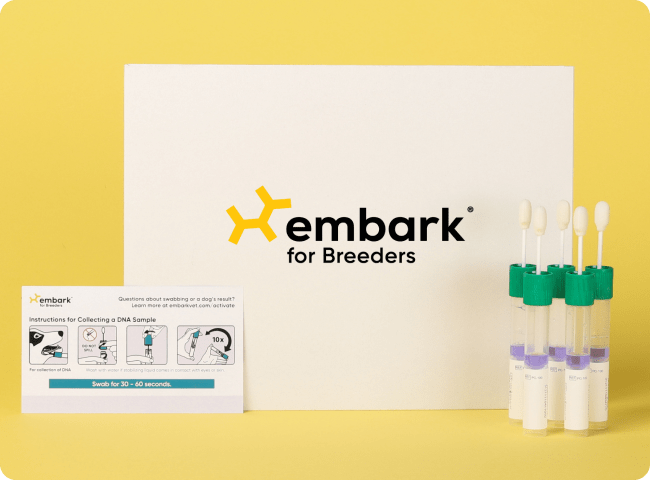Alaskan Malamute Polyneuropathy, AMPN
Polyneuropathy is a progressive neurologic disease that causes peripheral nerve dysfunction. Peripheral nerves relay messages between the brain and spinal cord to the rest of the body, mediating sensation, coordination, and movement.
-
Signs and symptoms
Dogs with polyneuropathy are typically first noticed with weakness and muscle wasting in the hind legs, leading to abnormal gait and hunched stance. Many owners also notice loud sounds when the dog breathes, or a change in the dog’s bark due to weakness of the muscles that control the voice box. Over time, the weakness and loss of feeling spreads to the front legs; in severe cases, dogs may have difficulty breathing as these muscles become affected.
Affected Malamutes usually begin to show signs when they are between seven and eighteen months of age, though some begin to show signs as early as three months old. -
Diagnosis
Combined with a thorough physical and neurologic exam, your veterinarian can definitively diagnose polyneuropathy with electromyography (EMG) and/or nerve biopsies. However, keep in mind that polyneuropathy can be caused by a variety of things including nutritional deficiencies, autoimmune disease, and infectious agents. Without suspicion that your dog’s polyneuropathy is genetic based on age of onset, breed predisposition, or family history, these will also need to be explored as underlying disease processes.
-
Treatment
Currently, there is no treatment for genetic polyneuropathy.
-
What to do if your dog is at risk
Actions
- Keeping your affected dog comfortable and giving them the best quality of life you can are the only actions you can take at home.
-
Genetic Information
In the Alaskan Malamute, a mutation in the NDRG has been linked to an inherited, early-onset polyneuropathy.
This disease is inherited in an autosomal recessive manner, meaning that affected dogs must have two copies of the mutation to show clinical signs.
Gene names:
NDRG1 ‐ chr
Inheritance type:
recessive
Citations:
-
Breeds affected
This health condition affects the following breeds
Learn about your dog’s unique genetic health
Dog owners
Breed identification, health and trait insights, personalized care recommendations, and the world’s first canine relative finder—all in one leading dog DNA test.
Learn about the report for dog ownersShop the test
Breeding programs
Embark’s test for breeding programs is one comprehensive DNA test designed with your needs in mind.
Learn about the report for breedersShop the test



